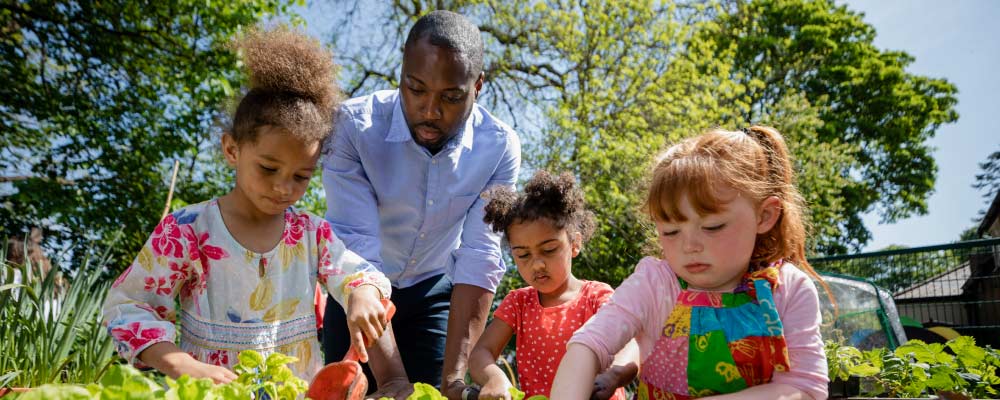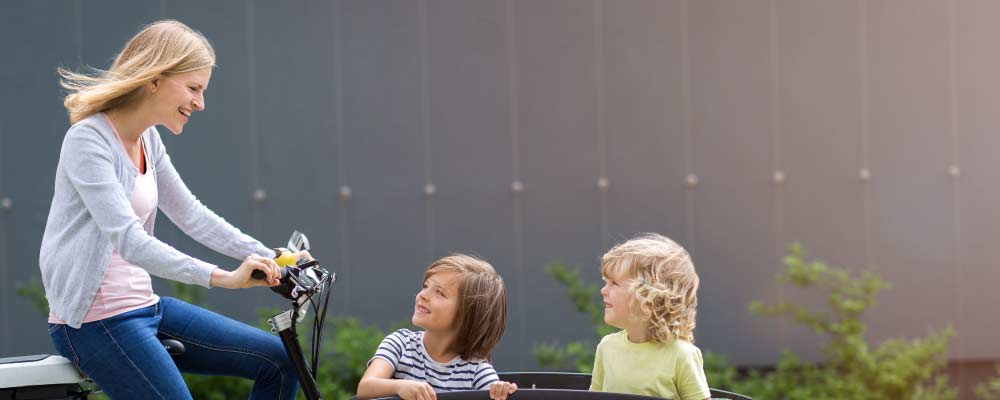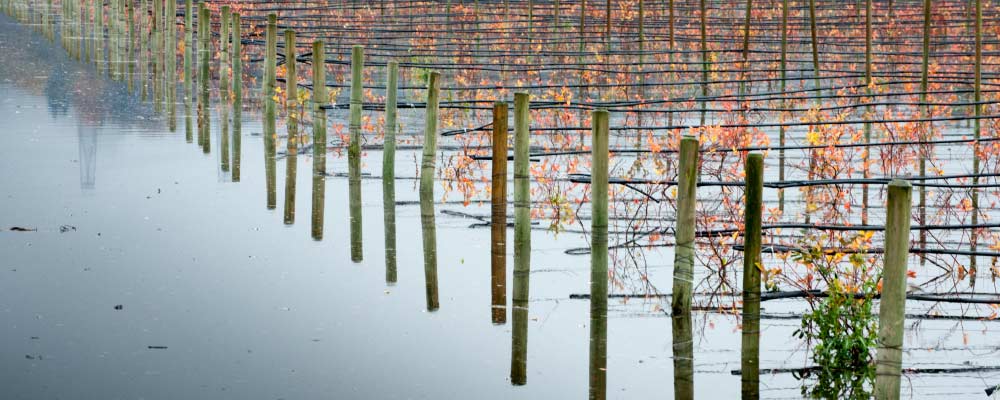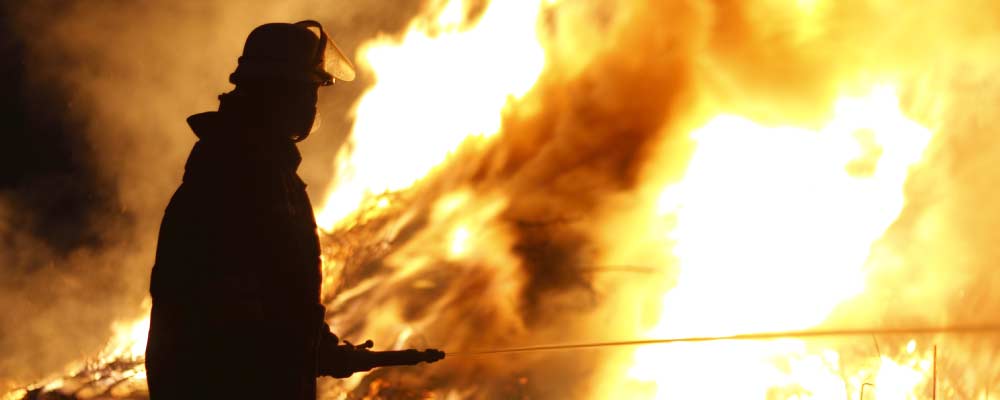Action today, with a plan for tomorrow: Read the BC budget speech
Two weeks ago, our BC NDP majority government gathered to open its third legislative session with a Speech from the Throne.
It's a parliamentary tradition where the government lays out its legislative plans in broad strokes, followed up by the release of a provincial budget that fills in the details.
Today, Finance Minister Selina Robinson presented her second BC budget — one that meets today's challenges, while keeping us moving forward by holding steady to what we know is true: that we are stronger together.
Read the full text of Finance Minister Selina Robinson's budget speech
I would like to begin today by acknowledging the Lekwungen peoples, the Songhees and Esquimalt First Nations, upon whose territories we are gathered.
I also invite everyone to consider the 204 First Nations upon whose territories we call British Columbia.
To all those joining us, I would like to extend a warm welcome.
Today, I am honoured to present Budget 2022.
A budget that keeps us all moving forward by holding steady to what we know is true.
That we are stronger together.
Budget 2022 meets today’s challenges, while always investing in a stronger British Columbia.
It delivers action today with a plan for tomorrow.
A plan that responds to the difficult days we find ourselves in.
We feel the weight of two continuing health crises, the poisoned drug supply and the COVID-19 pandemic.
We reckon with the grief that Indigenous communities have known for so long: that children were taken from their families, sent to residential schools, and never returned home.
We witness the destructive consequences of climate change, as communities scorched by heat and wildfires in the summer faced flooding and mudslides only months later.
These overlapping crises claimed lives and affect us all. To all those grieving - may your loved ones be for a blessing.

Who We Are
In these difficult days, I am reminded of a story.
It is the tale of an elderly father who asks his sons to break a bundle of sticks
Despite their best efforts, they are unable to do so. However, once the bundle is untied, each stick is easily broken.
While this story has ancient roots, its message of strength in unity holds true today.
Just like that bundle of sticks, we are stronger together.
Because, Mr. Speaker, it is when we are under pressure that we see who we truly are, as people and as a province.
British Columbians are caring.
When a safe and effective vaccine became available, millions of us rolled up our sleeves to protect ourselves and others.
Health-care workers, like my friend Sharon, came out of retirement to help with the largest vaccination program in our province’s history.
BC now has one of the lowest per-capita fatality rates from COVID-19 and one of the highest vaccination rates on the continent.
British Columbians are compassionate.
When our neighbours – whether across the street or across the province – need a hand, we are there.
The tools vary, from sandbags to firehoses and community kitchens, but we get the job done.
And, Mr. Speaker, British Columbians are committed.
Day after day, those working on the frontlines of mental health and addictions fight a rising tide of need.
And on the frontlines of the pandemic, we see the commitment of health-care workers in hospitals, teachers and early childhood educators in classrooms, and clerks in grocery stores.
My neighbour is a teacher. In the early days of the pandemic, she told me about reaching out to parents and students to make sure they were okay.
Time and time again, British Columbians have stepped up for one another.
Our government is right there with you.

Different Choices
When there are challenges that threaten us as a province, we must respond, as a province.
Some would choose differently.
Some argue that cuts and a reduced role for government is the right way forward.
But that’s not what most British Columbians expect. And that will not be our approach.
Mr. Speaker, instead of leaving people without support when times are tough, our government steps up – when and where we are needed.
- Hundreds of dollars went directly to millions of people through the BC Recovery Benefit – to help them through difficult times and support economic recovery.
- Hundreds of millions in safe restart funding helped communities maintain the services people count on, like public transit.
- And more than half-a-billion dollars supported the hardest hit small businesses and their staff.
- BC has provided some of the highest supports for people and businesses per-capita in Canada.
- Millions in funding provided a lifeline for more than 8,000 tourism businesses.
- And additional funding will provide support for non-profits impacted by the pandemic, as well as the arts, culture and music sector.
This year’s budget will continue support for the tourism sector as it recovers, with $25 million earmarked.
Instead of accepting the status quo, we are always looking for ways to make life better for people today. In some cases, this means righting past wrongs.
Last summer, we reversed a 20-year-old decision that ripped up the contracts of thousands of health-care workers, primarily affecting women and people of colour.
And today, we are reversing cuts made two decades ago, when the previous government slashed funding for sexual assault services to help pay for tax cuts for the wealthy.
I remember those cuts when they happened because I was working with the people it most affected, women and children.
Now, we are making it right.
Budget 2022 delivers $22 million to support survivors and restore stable funding for 50 sexual assault service centres.
Mr. Speaker, while some would choose to watch as ordinary British Columbians are left behind, we are working hard to close gaps made worse by the pandemic.
Workers in BC now have access to a minimum of five paid sick days every year. The most of any province in Canada.
We also have the highest minimum wage of any province, with a plan to tie future increases to the rate of inflation.
These are choices. Choices that our government is proud to stand behind. And they reflect the choices that have shaped this year’s budget.
Budget 2022 continues our work to build a stronger British Columbia – economically, socially, and environmentally.

Building a Stronger Economy
Despite a global pandemic, Mr. Speaker, BC remains strong on all three fronts.
And Budget 2022 continues building on these strengths.
British Columbia’s economic recovery is leading the nation.
Among provinces, we are tied for the lowest unemployment rate and we have the fastest job growth since the start of the pandemic.
In fact, more than 160,000 new jobs were created here last year.
That includes important public services being delivered by more people, like health care aides and teachers.
It also includes thousands of new private sector jobs in communities around the province.
To everyone who stepped up and kept our province strong, thank you.
Across the country, BC is recognized as a great place to live and raise a family.
Last year, we saw the largest net-migration of people from other provinces in almost three decades.
BC is also recognized as a great place to work and invest.
As just one example, mining exploration in British Columbia exceeded $600 million in 2021.
Mr. Speaker, this is the highest level in a decade.
As part of Budget 2022, we are supporting the continued growth of the mining sector with $18 million over three years.
This new funding will keep BC mining at the forefront of sustainability, create jobs and advance reconciliation.
Our province is also home to a thriving life-sciences sector.
Consider the fact that BC scientists and companies were involved with almost every COVID-19 vaccine that reached the final stages of development.
We are continuing to expand the sector with almost $200 million for Genome BC and the Michael Smith Health Research Foundation.
This investment will support continued growth, creating new scientific discoveries and economic opportunities along the way.
Here in British Columbia, local talent is driving global innovation.
We expect this to continue, especially as InBC – our strategic investment fund – starts backing BC businesses.

Good things are happening in our province and all signs point to a resilient post-pandemic economy.
That, Mr. Speaker, is where the StrongerBC Economic Plan comes in.
We are investing in today’s talent to meet the demands of tomorrow’s high-care, low-carbon economy.
Within the next 10 years, labour market forecasts estimate BC will have more than one million job openings.
Almost 80% of these jobs will require post-secondary education or training.
Preparing BC’s workforce is a generation-defining challenge.
It is also an opportunity. Our StrongerBC Economic Plan commits to closing the skills gap.
The skilled trades are a good example.
We are supporting better paying, more stable jobs for apprentices and trades workers through a new certification system.
Budget 2022 advances these efforts with new training seats and targeted programs for trades workers, along with more monitoring and compliance activities at worksites.
Other high-growth areas, like health care and technology, are the same ones our government has been focused on since 2017.
We have already created 2,600 new tech spaces at post-secondary institutions around the province, from Simon Fraser University to Okanagan College, and the British Columbia Institute of Technology.
Since 2017, we’ve had the fastest growing nursing workforce of any province. Our ongoing commitment to add 500 more nursing seats will continue this trend.
These graduates are making an immediate difference.
I think of Parm, a nursing student at Douglas College, who told me how eager she is to bring her energy and skills to the job when she graduates in just a couple months.
As we create new opportunities, Mr. Speaker, we are also breaking down barriers for under-represented communities.
This is part of our ongoing work to build a more inclusive economy. And we are starting to see results.
More women, youth and Indigenous people are working now than before the pandemic.
Thousands of Indigenous learners are accessing new training opportunities for careers in early childhood education, health care, and more.
We are also meeting a growing need for mid-career transition supports.
New micro credentials are helping thousands of people land secure jobs in established and emerging fields.
BCIT’s course on mass timber is a great example. Graduates will find work on a wide range of projects, from new student housing to health-care facilities.
Programs like this one make sure that workers, including those from BC’s forest sector, are driving economic growth.
Mr. Speaker, forestry is, and will remain, foundational to our province’s economy.
We are embarking on a new, sustainable approach to protecting and managing BC’s forests.
One that prioritizes value over volume. And one that protects our oldest and most at-risk forests for future generations.
As we move forward with these overdue changes, our government will make sure no one is left behind.
Budget 2022 delivers $185 million over three years to support affected forest workers and contractors, industry, communities and First Nations.
For workers, this includes a bridging to retirement program, creating new jobs through innovations like mass timber, and connecting people with skills training.
For communities, this supports partnerships with businesses, more diverse local economies, and the creation of jobs through new local infrastructure projects.
Additional opportunities for communities and First Nations will come with redistributed forest tenures.
We intend to double the amount of replaceable forest tenure held by First Nations.
Mr. Speaker, this is just one example of how reconciliation is moving forward in British Columbia.
This year’s budget creates a new Declaration Act Secretariat with $12 million over the next three years.
Its job will be to ensure legislation is consistent with the United Nations Declaration on the Rights of Indigenous Peoples and is developed in consultation and cooperation with Indigenous Peoples.
Additionally, Budget 2022 continues our government’s Indigenous housing investments.
We are, and continue to be, the only province building homes both on and off reserve.
New funding for the Aboriginal Head Start program will support more culturally based early learning opportunities.
I think of a preschool in the Gitwangak First Nation, where children are learning the Gitksen language, playing in Clan Houses and taking part in healing circles.
For Indigenous communities throughout the province, programs like this one are benefiting the next generation.
Mr. Speaker, a strong economy creates meaningful opportunities for everyone – regardless of your age, wage or postal code.
In today’s world, closing the digital divide helps level the playing field.
That is why connectivity has been a major priority for our government since Day 1.
Record funding is already bringing high-speed internet to 500 rural, remote and Indigenous communities throughout British Columbia.
It’s transformational work, happening right around the province.
Today, two ships are making are making their way down the coast, laying fibre optic cable from Prince Rupert to Haida Gwaii and southern Vancouver Island.
It’s difficult work. At the end of January, the crew laid the first 50 kilometres of cable just offshore from Lax Kw’alaams, Metlakatla, and Dodge Cove.
At each of its stops, new opportunities will be unlocked for small coastal communities.
Today, we are taking another major step forward.
With Budget 2022, our government’s total investments in connectivity will reach half-a-billion dollars.
- Another 280 communities will have a high-speed connection to today’s digital economy.
- And by 2027, Mr. Speaker, almost 800 communities will benefit from the Province’s investments in connectivity.

Just as we build new digital infrastructure, we are also building new schools, hospitals, and child care spaces.
New transit, roads, and bridges will keep people moving, goods flowing and our economy running.
Work is underway on the Broadway Subway project, replacements for the Massey Tunnel and Pattullo Bridge, and improvements along Highway 14 on Vancouver Island.
Today, we are taking our infrastructure plan to new heights – a record level $27.4 billion over the next three years.
This includes funding to bring the Surrey Langley SkyTrain all the way to Langley.
In planning now, it is the first rapid transit expansion south of the Fraser in three decades.
In addition to major transportation projects, our expanded capital plan will build new schools, continue investments in post-secondary expansions, and bring health care closer to home.
The largest affordable housing investment in BC’s history is also part of our infrastructure plan.
Mr. Speaker, British Columbia is the place to be.
In just the first nine months of last year, almost 85,000 people moved to our province.
With this success, however, comes additional pressure on our housing market.
And right now, too many people are still struggling to find an affordable place to rent or buy.
We can’t afford to wait. And we aren’t.
- Mr. Speaker, our government has banned renovictions and cracked down on speculation.
- During the pandemic, we froze rents then capped them permanently.
- More than 32,000 new, affordable homes are already built or on the way.
- Thousands of new student housing beds are under construction and will soon be easing pressure on local housing markets.
- Last year, more than 53,000 new homes were registered in BC
- And in the last five years, we’ve registered more rental homes than the previous 15 years combined.
But we all know – whether from the CMHC rental numbers released last week, or the stories we hear from constituents about the challenge of finding a home they can afford – that there is still much more work to be done.
Budget 2022 continues progress on our 10-year Building BC plan.
Total investments in housing and homelessness supports will reach more than $1.2 billion a year for the next three years. That’s three times the level of funding in 2017.
Last year, we made $2 billion in low-cost financing available through the HousingHub program.
We are already seeing the results. More than 4,400 HousingHub homes are open or underway for middle-income families.
And now, Budget 2022 will add more staff to help accelerate HousingHub projects.
Similarly, this year’s budget adds $100 million to accelerate the Community Housing Fund.
This will support the work of non-profit partners to build even more mixed-income rentals – and to do it faster.
Mr. Speaker, the new Sunrise Centre in Kamloops is a great example of this program in action.
Three years ago, I had the opportunity to celebrate with the community when we broke ground on these new homes.
Today, the first residents – mostly low-income seniors – take comfort in knowing their rents will always be capped at 30% of their income.
And the building is right downtown, just a short walk away from the pharmacy and grocery store.
These new homes, and thousands more like them, provide an affordable future for British Columbians.

Creating a Stronger Society
Building the homes people need supports BC’s economic strength.
It is also part of our work to build a healthier society – in every sense of the word.
Budget 2022 commits a total of $3.2 billion over three years to build an even stronger health and mental health-care system for British Columbians.
We are adding $300 million over three years to help with continuing efforts to address waitlists for surgeries and scans.
We are also committing $875 million in the next year to get more people immunized, more PPE purchased, and more people tested for COVID-19.
Budget 2022 continues our government’s work to deliver better care in communities throughout BC.
The Cowichan, Dawson Creek, Richmond, Burnaby and new Surrey hospital projects are all moving ahead, including a new state-of-the-art cancer care centre in Surrey.
And more cancer care centres are being planned for Kamloops and Nanaimo.
This year’s budget will continue to invest in Urgent and Primary Care Centres. Our goal is to nearly double the number of centres by 2025.
To bring culturally safe care closer to home, Budget 2022 will add traditional Indigenous health providers to local primary care teams.
We are continuing to work in partnership with the First Nations Health Authority to create new First Nations Primary Care Centres throughout the province.
Mr. Speaker, we recognize that the pandemic has threatened more than our physical health. It has taken a significant toll on our mental well-being.
And tragically, the poisoned drug crisis has only worsened.
Our government is tackling this head on with the largest investment in mental health and addictions services in BC’s history.
A new, comprehensive system of treatment and care is being built. Five years ago, one simply did not exist.
Despite heroic efforts from those working on – and working in – this new system, the poisoned drug supply continues to claim lives.
While it is hard to see past the tragedy, Mr. Speaker, there are stories that inspire hope.
Stories like Daniel’s. After years of homelessness and living with addictions, he checked into a new treatment bed in Nanaimo.
“It definitely saved my life,” Daniel says. He’s now excited about the future and plans to take things one step at a time.
And his first step was a meaningful one. For the first time in four years, Daniel spent Christmas with his family.
It’s for Daniel and so many others that frontline workers remain committed to this fight.
So too is our government.
- We are taking action by opening hundreds of treatment and recovery beds, just like the one in Nanaimo;
- By becoming the first province in Canada to apply for decriminalization and offer prescribed safe supply; and,
- By operating free and affordable counselling services and Foundry centres in dozens of communities.
- For people living with a combination of addictions, severe mental health issues or brain injury, Budget 2022 provides another pathway to hope.
New complex care housing, already on the way for Surrey, Abbotsford and Vancouver, will be expanded to another 20 sites throughout the province.
This first-of-its-kind approach will help stop the cycle of evictions, shelters, emergency rooms and jails for hundreds of people with complex care needs.
Mr. Speaker, it has often been said that while we are all in the same storm, we are not in the same boat.
The pandemic has only served to deepen pre-existing gaps in services and supports.
You can see this playing out on streets right across the country.
A new, comprehensive approach is needed to shift from reactive to proactive solutions for homelessness.
This year’s budget delivers, Mr. Speaker, with $633 million to tackle homelessness over the next three years.
When COVID-19 first hit, we acted fast to bring more than 3,000 people in off the street and into temporary shelters.
Now we are working to make this move permanent by funding hundreds of new homes with supports and connecting people with spaces in newly finished buildings.
To give people stability while new, permanent homes are being built, we are extending leases on some temporary spaces.
Additionally, new rent supplements will help thousands of low-income people find secure housing in the rental market, with wrap-around supports.
While an immediate response is vital, we must also shift our attention upstream toward prevention.
The late Katherine McParland was a fierce advocate on youth homelessness. She also became a friend and advisor to this government, and to me.
As Katherine described it, “foster care is a superhighway to homelessness.”
She called on government to be part of the solution.
Our government is listening to people like Katherine. Things are going to change.
Today, Mr. Speaker, we are making good on our promise to support all youth who are aging out of care.
Budget 2022 provides more income supports, new earning exemptions, and a whole host of housing, health and life skills supports that will continue for youth aging out of care until the age of 27.
The bottom line is this.
As a mum, I know the responsibility that I have to my children did not end on their 19th birthdays.
And neither does our government’s responsibility.
This doesn’t just apply to youth aging out of care.

Giving every child the best possible start is key to strengthening the social fabric of our province.
As K-12 enrollment continues to grow, we are continuing investments to match.
Budget 2022 commits an additional $664 million over three years to respond to increased enrollment.
Work also continues on state-of the-art classrooms around the province.
This past year, 20 new or improved schools opened in communities like Courtenay, Smithers and Surrey. And more schools are under construction now.
Many will include child care spaces, which is good news for families.
Parents know there will always be a space for their child in public school, and we are working hard to bring this same certainty to child care.
With this year’s budget, we are embedding child care within the Ministry of Education.
This is all part of our government’s work to establish child care as a core service that’s available to any family that wants it, when they need it, at a price they can afford.
Already, thousands of families are paying less for child care than when we first formed government.
We’ve funded over 26,000 new spaces, surpassing our original target.
Taken together, this work has established BC as a national leader on child care.
And it meant that when the federal government came to the table, we were ready.
Mr. Speaker, a historic agreement is now in place that brings BC closer than ever to $10 a day child care.
Within seven years, another 40,000 spaces will be funded in partnership with the federal government.
And by the end of this year, parent fees for children aged five and under will drop by an average of 50%.
This is a huge win for families and one that our government has pushed for since Day 1.
Budget 2022 takes another big step forward on making child care more affordable for families.
We are going to lower the average fees for preschool and before- and after-school care to less than $20 a day for the 2023-24 school year.
Mr. Speaker, as child care becomes a core service for BC families, we must also train more skilled professionals.
Already, we have doubled the number of early childhood educator seats over the last three years.
And now, Budget 2022 will add hundreds of new seats to train more ECEs.
This year’s budget will also extend the wage enhancement to even more child care professionals.
It will now include ECEs who split their time between working with children and supervising staff, answering calls from parents, and helping with other behind-the-scenes work.

A Stronger Environment for a Resilient Future
Mr. Speaker, the last year has been a powerful reminder of how closely connected people’s health and well-being are to that of our natural environment.
In this year’s budget consultations, I heard a united message from British Columbians.
Action is needed now – both to fight climate change, and to protect people and communities from the effects of climate-related disasters.
Budget 2022 will help keep people safe today, while building a better, more climate resilient British Columbia for generations to come.
Three years ago, our government introduced CleanBC – one of the strongest climate plans in North America.
We then accelerated the fight against climate change with the CleanBC Roadmap to 2030.
Today, an additional $1 billion for CleanBC will help us reach a low-carbon future, faster.
This year’s budget strengthens the Clean BC Program for Industry to help decarbonize our economy.
We are also creating a new Clean Buildings Tax Rebate to support deep energy retrofits of larger rental and commercial buildings.
While most people want to make the right choice by the environment, it isn’t always the most affordable option.
We are working hard to change that.
Budget 2022 will remove the PST from all electric heat pumps, while increasing the PST on fossil-fuel heating equipment.
These revenues will offset the cost of new incentives to make heat pumps more affordable for homeowners in rural and northern British Columbia.
Electric vehicles are another example of how we are making climate-smart decisions more affordable.
Mr. Speaker, BC leads North America in the transition to electric vehicles.
To build on this momentum, Budget 2022 will continue the popular Go Electric program.
And to make used EVs even more affordable, we are going to remove the PST.
This year’s budget also launches a Clean Transportation Action Plan and continues growing the province’s network of bike lanes and multi-use pathways.
We are also expanding exemptions to the Motor Fuel Tax to include hydrogen powered vehicles.
This will benefit companies like BC-based Hydra Energy, as it works to transition heavy-duty vehicles to hydrogen power.

While the fight against climate change continues, recent disasters show that we must strengthen our defences at home.
Mr. Speaker, while we have all experienced the realities of climate change this year, I can’t help but think of Indigenous people in the Nicola Valley, farmers in Abbotsford, and the residents of Merritt, Princeton, and Lytton.
No single community can rebuild on its own. We are going to get through this, together.
This year’s budget delivers more than $2.1 billion to help us prepare for, respond to, and recover from floods, heatwaves and wildfires.
It begins with $1.5 billion to support people and communities with flood recovery.
A total of $400 million will cover known costs, from removing debris to providing financial assistance for hard-hit people, businesses and communities.
An additional $1.1 billion is earmarked in contingencies to support additional recovery costs in the months ahead.
Mr. Speaker, the Government of Canada has been a steadfast partner through these difficult times.
An allocated $5 billion in federal assistance will help backstop BC’s flood recovery efforts.
As a sign of what we can accomplish together, the largest financial recovery package ever for BC farmers is on the way.
There is a long road ahead, and rebuilding what we have lost is only part of the job.
We must act now to protect people and communities against future climate disasters.
A total of $120 million provided this year will support the Community Emergency Preparedness Fund and Indigenous-led emergency management.
This will help power local emergency services and operations centres, map floodplains, support flood risk assessments and more.
Even with strong preventative action, British Columbia must be ready to protect people, property, and communities from climate disasters.
In moments of crisis, the BC Wildfire Service and Emergency Management BC have been unwavering in their response.
We owe them our thanks and so much more.
Budget 2022 commits $145 million over three years to increase staff at both agencies and move toward a more proactive approach.
- For EMBC, this means a stronger provincial response to emergencies, and more co-ordination with communities and First Nations.
- For the BC Wildfire Service, this marks a transition toward year-round fire fighting and risk mitigation.
To support these efforts, Budget 2022 delivers nearly $200 million to support wildfire prevention activities.
This includes $90 million in new funding to help more communities participate in programs like FireSmart.
When the Tremont Creek wildfire threatened the community of Logan Lake, we saw what it meant to be a FireSmart community – and the difference it can make in an emergency.
Taken together, these measures will help British Columbia stand strong in the face of disaster.
And while extreme weather events get the most attention, we know that even the gradual effects of a changing climate can have significant implications.
From the kind of food we grow, to the design of our sewers and roads.
We must be prepared for change on both fronts.
That is where BC’s Climate Preparedness and Adaptation Strategy comes into play.
Budget 2022 will begin implementing the strategy province-wide with $83 million.
So what does that look like on the ground?
- It looks like more state-of-the-art climate monitoring stations along BC’s rivers, lakes and shorelines. To better predict what is coming, we need to start collecting the best data possible.
- It looks like a new extreme heat response framework that will better predict where and when heatwaves will hit, and how we can help the most vulnerable.
- It looks like an expanded River Forecast Centre and provincial floodplain mapping program.
- And finally, it means strengthening our partnership with local governments and Indigenous communities to work together to understand, monitor, manage and reduce climate risks.
While the fight against climate change continues, we can – and will – ensure that we are ready to protect people and communities.

Conclusion
We have all learned a great deal over the last two years.
Through each challenge, we have seen time and time again that we are stronger together.
There is a long road ahead, as we all rebuild and repair the damage left by these difficult times.
If patience wanes or hope wavers, remember that you are not alone in this. You have another five million or so people, ready to lend a hand.
Just as the bundled sticks would not break, neither will we.
And, Mr. Speaker, while we all know what we are fighting against, be it COVID‑19, climate change or the poisoned drug crisis.
We cannot lose sight of who and what we are fighting for.
For first days of kindergarten and graduations.
For people taking a first brave step on their path to hope.
For small businesses to bank on growth.
For communities built to withstand any storm.
And for the healthcare workers, child care professionals, teachers, and bus drivers who got us through these last two years.
We will reach those better days ahead by continuing to build on today’s strengths, and together we will discover the opportunities that tomorrow holds.